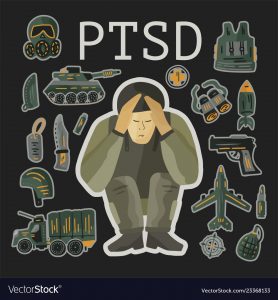The most memorable online learning experience I have was when I took an online course about resilience psychology at Thompson Rivers University. It was a course about what factors that help people who experienced traumatic events “bounce back”. The format of that online course was asynchronous. Students can finish the course at our own pace within 30 weeks after registration. I was asked to read the assigned course readings, watch interviews of psychologists and write reflections base on those materials. I studied that online course effectively because the course materials reduce my learning burdens, my teacher maintained good communication with me and I connected many relevant topics to my own life.

When I need help, I emailed my instructor. She replied very soon and solved my questions effectively. Like chapter 5: effective practices say, it is important to keep learners engaged with the learning materials. My online course instructor did a very good job of organizing learning materials to reduce my burdens. The instructor provided no only related journal articles, but also some videos that can explain a concept in a simple way. Can you imagine reading five 20-page articles in each module? I bet you might want to drop the course right away. Therefore, the mixed formats of course material reduce my learning burden and boost better learning outcomes. Such a teaching method can help learners reduce cognitive burdens. There is a concept called a cognitive load, which means how much knowledge can one’s brain contains at one time. As Kirschner, Sweller, Kirschner, and Zambrano (2018), it is important to reduce learners’ cognitive load in studying.
(This was a video my instructor posted to help us understand what is resilience. It is short and simple.)
Again, according to this reading, communication is extremely important in online learning. Because it was an online course provided by Thompson Rivers University, which is located in Kamloops, I could not meet my instructor in person to talk about the issues I met. I emailed my instructor a lot. Despite sometimes I might as some dumb questions, she replied to me quickly and patiently. Just like this reading says, unclear communication can cause learner’s frustrations and confusion. I can not imagine if my instructor never replied my email. Therefore, one of the factors that I gained success in that course was clear communication between the learner and the instructor. From my online study experience, I know that the instructor plays an extremely important role in helping students gain success in online learning. As the author said in the article about the online teacher, it is important to realize the difference between traditional teaching and online teacher and be able to shift between traditional and new teaching methods (Comas-Quinn, 2011). We are so used to contact each other face to face before the popularity of online studying. It is important that instructors know how to handle new contracting methods and publishing course materials online.

(picture from https://pixabay.com/illustrations/email-newsletter-marketing-online-3249062/)
I connected many course topics with my real-life experiences. For instance, my dad was a soldier who experienced the Sino-Vietnamese war in 1979. He has been suffered from Post-Traumatic Stress Disorder(PTSD) for many years, but he did not know it was a psychological illness. When I did my homework, I always used my dad as an example. And when the topic was about what interventions can help people to gain resilience, I would think of my dad. Beach my instructor encouraged me to think of how the topics and my real-life related to each other, it helped me to gain success in that online learning experience. Such a teaching method can help learners reduce cognitive burdens.

As the author says in chapter 7, media itself is just media, it is about how learners and instructors use it to boost better learning outcomes. What we need to focus on is to reduce learner’s burdens by mixing different forms of course materials, communicating effectively, and encouraging learners to think of their own real-life experiences when they are learning a certain concept. It was my most memorable online learning experience and what I have learned from it.
References
Comas-Quinn, A. (2011). Learning to teach online or learning to become an online teacher: An exploration of teachers’ experiences in a blended learning course. Recall, 23(3), 218-232. doi:10.1017/S0958344011000152
Kirschner, P. A., Sweller, J., Kirschner, F., & Zambrano, J. R. (2018). From cognitive load theory to collaborative cognitive load theory. International Journal of Computer-Supported Collaborative Learning, 13(2), 213-233. doi:10.1007/s11412-018-9277-y
Kirschner, P. A., Sweller, J., Kirschner, F., & Zambrano, J. R. (2018). From cognitive load theory to collaborative cognitive load theory. International Journal of Computer-Supported Collaborative Learning, 13(2), 213-233. doi:10.1007/s11412-018-9277-y